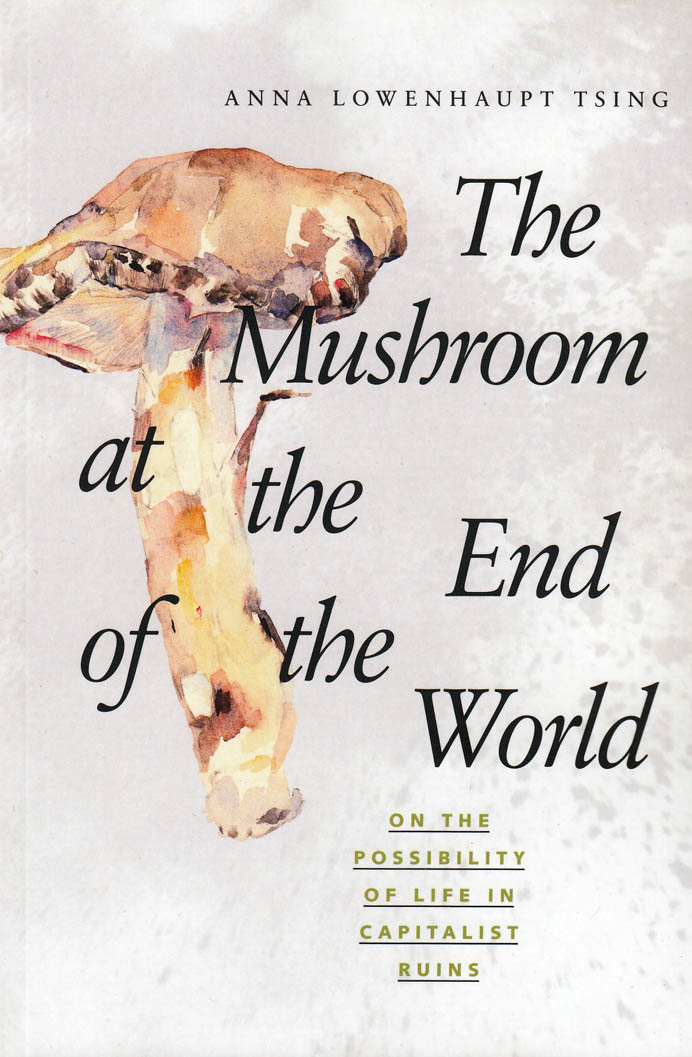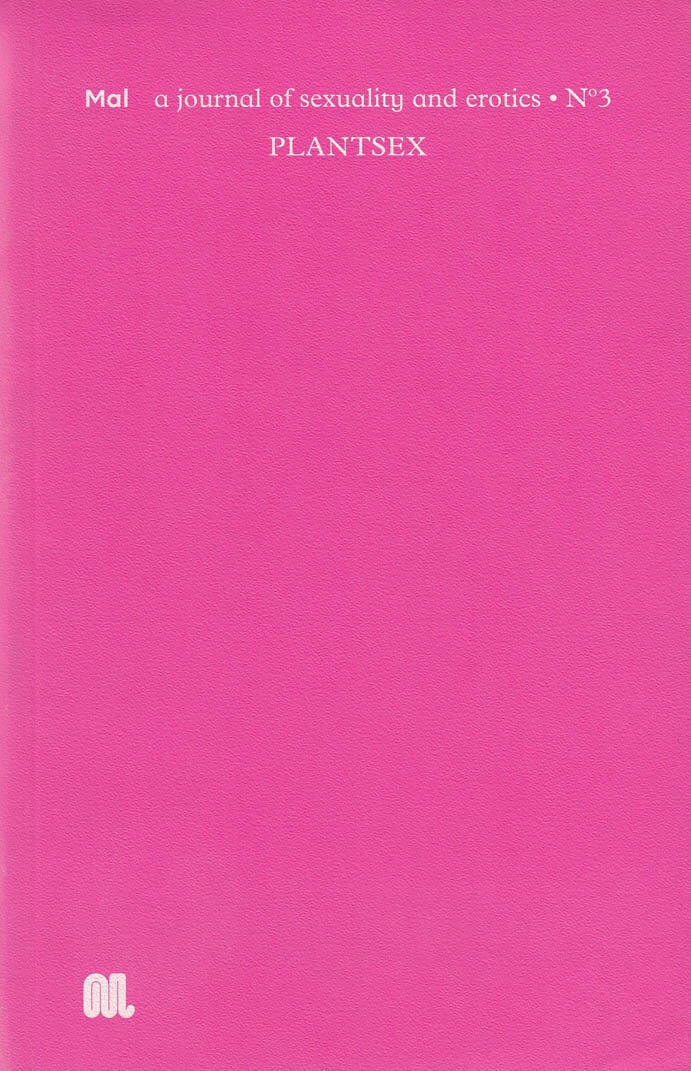Ecology
Ecology

Energy Systems
Reflecting on recent ecological shifts at both local and global scales, Energy Systems explores the systems that dominate global infrastructure and the consequences of connectivism under late capitalism; probing correlations between the worldwide drive for connectivity and the emergence of severe environmental rifts.
Energy Systems seeks to find ways of replacing ‘network’ orientated capital accumulation and socio environmental exploitation with ‘metabolisms’ which are orientated toward reciprocal models of coexistence. Through newly commissioned and existing text works by 19 artists and academics, Energy Systems explores a new architecture of values and begins to build stepping stones toward addressing the systemic alienation of the environment.
Energy Systems is released as part of Well Project’s 2020 exhibition programme of the same name. You can find documentation from each exhibition held as part of the programme at: www.wellprojects.xyz
Contributors:
Verity Birt, Dimitrios Bormpoudakis, Louise Beer, Milo Creese, Joachim Coucke, Kyriaki Costa, Hector Campbell, Jack Clarke, Sophie Dyer, Sasha Englemann, Billy Fraser, Nicolette Clara Illes, Melanie King, Ruth Pilston, Lou Lou Sainsbury, Tom Sewell, Sissel Marie Tonn & Rosie Grace Ward.

More-than-Human
Lucia Pietroiusti, Marina Otero Verzier and 1 more
The More-than-Human reader brings together texts that reflect on the state of post-anthropocentric thinking today, by writers from a wide range of disciplines. Focusing on the ecologies and technologies of climate injustice and inequalities, as well as the destructive structures lurking within anthropocentrism, More-than-Human proposes complex entanglements, frictions, and reparative attention across species and beings.
Thinking past the centrality of the human subject, the texts that compose this reader begin to imagine networks of ethics and responsibility emerging not from the ideologies of old, but from the messy and complex liveliness around and beneath us.
Rather than attempting to be a comprehensive compendium on the topic (which would be virtually impossible), More-than-Human provides a cross-section of the breadth and vitality of a literary, scientific, and conceptual milieu where multiple strands of work intersect even as they are frequently regarded as belonging to separate disciplinary discourses.
Contributors: Stacy Alaimo, Ramon Amaro, Karen Barad, Rosi Braidotti, Octavia Butler, Georges Canguilhem, Marisol de la Cadena, NASA History Department, Silvia Federici, Scott F. Gilbert, Édouard Glissant, Jack Halberstam, Donna Haraway, Myra J. Hird, Kristina Lyons, Patricia MacCormack, John T. Maher, Michael Marder, Timothy Mitchell, Reza Negarastani, Jussi Parikka, Elizabeth Povinelli, Paul B. Preciado, María Puig de la Bellacasa, Filipa Ramos, Isabelle Stengers, Elly R. Truitt, Anna L. Tsing, Eduardo Vivieros de Castro, Jason Wallin, Kathryn Yusoff and Joanna Zylinska.

A Mycological Foray: Variations on Mushrooms
[Slightly damaged cover. Reduced price from 60 euros.] Foraging for mushrooms with John Cage: writing, art, photography and ephemera from an idiosyncratic chapter in the composer's life
Imagined as an extended mushroom-foraging expedition, John Cage: A Mycological Foray gathers together Cage's mushroom-themed compositions, photographs, illustrations and ephemera. Indeterminacy Stories and other writings by Cage are interwoven throughout the first volume within a central essay examining Cage's enduring relationship with mycology. Also included is a transcript of Cage's 1983 performance, MUSHROOMS et Variationes. The second volume is the inaugural reproduction of Cage's 1972 portfolio, Mushroom Book, authored in collaboration with illustrator Lois Long and botanist Alexander H. Smith. Readers are thus drawn through the landscape of Cage's mycologically centred oeuvre and interests, discovering assorted works, images, compositions, philosophies and ephemera, as one might encounter assorted fungi and flora while foraging.
John Cage: A Mycological Foray constitutes a new, idiosyncratic chapter in Cage's oeuvre, a departure from the composer's more established narrative.
American composer and music theorist John Cage (1912-92) was a pioneer of indeterminacy in music, electroacoustic music and a leading figure of the postwar avant-garde. His influence extended to the realms of dance, poetry, performance and visual art.

A Textbook for the Ecocene
A Textbook for the Ecocene is a how-to guide for connecting to self, community and planet. The Ecocene is an emergent and imagined geologic era where all humyns are living in reciprocity with their ecosystems again. Each textbook chapter shares practical exercises to try at home, Earth-centered theory and spirituality, and interviews with Black and Indigenous Earth warriors—cultural workers generating planetary liberation in their everyday lives. These testimonios from Johanna Iraheta, Bruje Fuego, Raquel Lemus, Patty Denisse, Jasmine Nyende, Queen Hollins and Olivia Chumacero shine with wisdom and advice for new and seasoned Earth stewards alike. Created originally as Sarita Dougherty's DIY PhD Dissertation, A Textbook for the Ecocene is a curricula for eco-feminista educations, DIY degrees and planetary destinies. We are activating the Ecocene right now, one step at a time. What we pay attention to grows.
Size: 5" x 8.5", 158 pages, perfect bound
Self-published by Co—Conspirator Press with the support of Women's Center for Creative Work. Edited by Simone Krug, copy edited by Gowri Chandra and Demi Corso. Designed by MJ Balvanera, Riso-printed by Neko Natalia.

Undrowned: Black Feminist Lessons from Marine Mammals
Undrowned is a book-length meditation for social movements and our whole species based on the subversive and transformative guidance of marine mammals. Our aquatic cousins are queer, fierce, protective of each other, complex, shaped by conflict, and struggling to survive the extractive and militarized conditions our species has imposed on the ocean. Gumbs employs a brilliant mix of poetic sensibility and naturalist observation to show what they might teach us, producing not a specific agenda but an unfolding space for wondering and questioning. From the relationship between the endangered North Atlantic Right Whale and Gumbs's Shinnecock and enslaved ancestors to the ways echolocation changes our understandings of "vision" and visionary action, this is a masterful use of metaphor and natural models in the service of social justice.
With Foreword by adrienne maree brown
Alexis Pauline Gumbs is a poet, independent scholar, and activist. She is the author of Spill: Scenes of Black Feminist Fugitivity, M Archive: After the End of the World, and Dub: Finding Ceremony; coeditor of Revolutionary Mothering: Love on the Front Lines; and the founder of Brilliance Remastered, an online network and series of retreats and online intensives serving community accountable intellectuals and artists.

FUNGI
Dries Segers photographed all tangible fungi organisms in Dudenparc Brussels. Fungi are the oldest living species on our planet. They build and spread their communities across human borders continents laws … They take over land without asking permission. They clean up toxic messes in disturbed landscapes and shake the land back to life to create livable grounds for animals plants and maybe humans. They have the power to transport energy between weaker and stronger trees to keep forests alive or to kill them. Their spores are invisible and spread and spread and spread.
“The uncontrolled lives of mushrooms are a gift — and a guide — when the controlled world we thought we had fails.” — Anna Lowenhaupt Tsing
Published 2019
36 pages 28×42 cm
design: Chloé D’hauwe & Ine Meganck
text: Hannah De Meyer
print: Stockmans Duffel

The Against Nature Journal #1
Aimar Arriola, Grégory Castéra
THE AGAINST NATURE JOURNAL is a biannual arts and human rights magazine exploring “crime against nature” laws and their legacies, in print, in person, and online. Authors and readers from law, activism, social sciences, and the arts are brought together to foster dialogue on sexual and reproductive rights and rethink nature anew.

Earthrise
There is no question that ecological ideas acquired a central role in contemporary episteme. In contrast, the heuristic function that these ideas can assume in the current polarisation is questionable: that which, over the last decade, has identified the environmental crisis with the (categorical and totalitarian) concept of the Anthropocene.
Ecological discourse positioned itself inside historically situated trajectories that contributed to the transformation of aesthetical paradigms and political practices. In the scenario that 1968 opened up, the transversal nature of subjectivity allowed it to cover different fields, beginning with the tension between the logic of a unitary discourse and the creation of a multiplicity of possible worlds, between the molar and the molecular, the micro and the macro.
Ecological thought, as such, cannot help but conflict with that which is assumed to be homogeneous and constant, with that which forces the earth to be centred, measured, and expropriated, just as life must be biogenetically controlled, colonised, and subjected to patriarchy.

Braiding Sweetgrass
"As a leading researcher in the field of biology, Robin Wall Kimmerer understands the delicate state of our world. But as an active member of the Potawatomi nation, she senses and relates to the world through a way of knowing far older than any science. In Braiding Sweetgrass, she intertwines these two modes of awareness — the analytic and the emotional, the scientific and the cultural—to ultimately reveal a path toward healing the rift that grows between people and nature. The woven essays that construct this book bring people back into conversation with all that is green and growing; a universe that never stopped speaking to us, even when we forgot how to listen"
Robin Wall Kimmerer is a mother, scientist, decorated professor, and enrolled member of the Citizen Potawatomi Nation. She is the author of Braiding Sweetgrass: Indigenous Wisdom, Scientific Knowledge and the Teaching of Plants and Gathering Moss: A Natural and Cultural History of Mosses. She lives in Syracuse, New York, where she is a SUNY Distinguished Teaching Professor of Environmental Biology, and the founder and director of the Center for Native Peoples and the Environment.

Beauty Kit
BEAUTY KIT – AN ECO-EROGENOUS ART PROJECT by Isabel Burr Raty with contributions by Kristin Rogghe, Elke Van Campenhout, Gosie Vervloessem, Pablo Diartinez and Tim Vets, is an experimental catalog summarizing Isabel Burr Raty’s research on conceptualizing and manufacturing eco-erogenous para-pharmaceutical products. It tells the story of the BKFF, a mobile farm where she and other females harvest their orgasmic juices to produce beauty bio-products, used for treatments in the BK Spa, critically discussed in the BK Focus Group and moving forward into becoming a village, where every-body harvests each other. The catalog comes with contributing text, “Harvesting bodies – The Farm as Paradox” by Elle/Elke Van Campenhout, and other reflections on the project.
Isabel Burr Raty is a Belgian-Chilean artist, filmmaker, and Media Art History teacher in ERG (École de Recherche Graphique), living between Brussels and Amsterdam. She is currently developing her second feature film, about the colonial impact on Easter Island, and creating live art and new media installations that queer production understandings, such as the Beauty Kit Project. Her works have been shown internationally.

The Mushroom at the End of the World
What a rare mushroom can teach us about sustaining life on a fragile planet. Matsutake is the most valuable mushroom in the world,vand a weed that grows in human-disturbed forests across the northern hemisphere. Through its ability to nurture trees, matsutake helps forests to grow in daunting places. It is also an edible delicacy in Japan, where it sometimes commands astronomical prices. In all its contradictions, matsutake offers insights into areas far beyond just mushrooms and addresses a crucial question: what manages to live in the ruins we have made?
A tale of diversity within our damaged landscapes, The Mushroom at the End of the World follows one of the strangest commodity chains of our times to explore the unexpected corners of capitalism. Here, we witness the varied and peculiar worlds of matsutake commerce: the worlds of Japanese gourmets, capitalist traders, Hmong jungle fighters, industrial forests, Yi Chinese goat herders, Finnish nature guides, and more. These companions also lead us into fungal ecologies and forest histories to better understand the promise of cohabitation in a time of massive human destruction.
By investigating one of the world's most sought-after fungi, The Mushroom at the End of the World presents an original examination into the relation between capitalist destruction and collaborative survival within multispecies landscapes, the prerequisite for continuing life on earth.
"Scientists and artists know that the way to handle an immense topic is often through close attention to a small aspect of it, revealing the whole through the part. In the shape of a finch's beak we can see all of evolution. So through close, indeed loving, attention to a certain fascinating mushroom, the matsutake, Anna Lowenhaupt Tsing discusses how the whole immense crisis of ecology came about and why it continues. Critical of simplistic reductionism, she offers clear analysis, and in place of panicked reaction considers possibilities of rational, humane, resourceful behavior. In a situation where urgency and enormity can overwhelm the mind, she gives us a real way to think about it. I'm very grateful to have this book as a guide through the coming years." - Ursula K. Le Guin

Geontologies: A Requiem to Late Liberalism
In Geontologies Elizabeth A. Povinelli continues her project of mapping the current conditions of late liberalism by offering a bold retheorization of power. Finding Foucauldian biopolitics unable to adequately reveal contemporary mechanisms of power and governance, Povinelli describes a mode of power she calls geontopower, which operates through the regulation of the distinction between Life and Nonlife and the figures of the Desert, the Animist, and the Virus. Geontologies examines this formation of power from the perspective of Indigenous Australian maneuvers against the settler state.
And it probes how our contemporary critical languages—anthropogenic climate change, plasticity, new materialism, antinormativity—often unwittingly transform their struggles against geontopower into a deeper entwinement within it. A woman who became a river, a snakelike entity who spawns the fog, plesiosaurus fossils and vast networks of rock weirs: in asking how these different forms of existence refuse incorporation into the vocabularies of Western theory Povinelli provides a revelatory new way to understand a form of power long self-evident in certain regimes of settler late liberalism but now becoming visible much further beyond.

MAL, Nº 3: PLANTSEX
Kathryn Maris, Maria Dimitrova
On botany and eroticism in twelve essays, stories and poems. Published in collaboration with Serpentine Galleries.
First published: April 2019.
This issue of Mal Journal features an essay by Chloe Aridjis on Mexican flora and its foreigners, a sequence of poems by Bhanu Kapil, an essay on the sex lives of plants by Emanuele Coccia, a sci-fi story by artist Victoria Sin, a personal exploration of the queerness of gardening by Julia Bell, an essay on queer botanics by film critic Teresa Castro, a sequence of botanical nursery rhymes and artworks by artist, poet and gardener Alex Cecchetti, a new poem (and somatic poetry ritual) by CAConrad, an essay by writer and poet Daisy Lafarge asking ‘Can you be a revolutionary & still love flowers?’, excerpts from the Song of Songs and Ovid's Fasti V and Metamorphoses, and illustrations by Australian artist Yi Xiao Chen.

A Billion Black Anthropocenes or None
Tracing the color line of the Anthropocene, A Billion Black Anthropocenes or None examines how the grammar of geology is foundational to establishing the extractive economies of subjective life and the earth under colonialism and slavery. Yusoff initiates a transdisciplinary conversation between feminist black theory, geography, and the earth sciences, addressing the politics of the Anthropocene within the context of race, materiality, deep time, and the afterlives of geology.

The Word For World is Still Forest
The Word for World is Still Forest creates a space for the reader-as-exhibition-viewer to consider how forests may be seen not only for their trees, but also how they can enable experiences of elegance, affirmation, and creation for a multitude of creatures. in response to their violent destruction, which characterizes the Anthropocene, these pages traverse various woodlands by way of their semiotic, socio-political, historical, and epistemic incitements in order to reveal how practices of care, concern, and attention also enable humans to inhabit and flourish in this world as forest. Taking its title from Ursula K. Le Guin’s 1972 novella, The Word for World is Still Forest curates an homage to the forest as a turbulent, interconnected, multinature. Moving from concepts of the forest as a thinking organism to the linear monocultural plantations that now threaten the life of global forests, the volume includes interviews, a photo essay, case studies, reflections, drawings, essays and more.
Contributors: Sandra Bartoli, Kevin Beiler, Shannon Castleman, Dan Handel, Katie Holten, Elise Hunchuck, Silvan Linden, Yanni A. Loukissas, Eduardo Kohn, Pedro Neves Marques, Abel Rodríguez, Carlos Rodríguez, Suzanne Simard, Anna-Sophie Springer, Paulo Tavares Etienne Turpin, Catalina Vargas Tovar

Reverse Hallucinations in The Archipelago
Reverse Hallucinations in the Archipelago unfolds an itinerant encounter with nineteenth-century European naturalists in the Malay world, where the theory of evolution by natural selection emerged alongside less celebrated concerns about mass extinction and climate change; by re-considering the reverse hallucinatory condition of colonial science in the tropics—how scientists learned to not see what was manifestly present—the reader-as-exhibition-viewer may exhume from the remains of this will to knowledge an ethical conviction of particular relevance for confronting forms of neocolonization in the Anthropocene. Reverse Hallucinations in the Archipelago reflects on the changing role of colonial natural history collections in the current ecological crisis called the Anthropocene. The volume features an essay, a science fiction graphic novella, photographs, interviews, and more.
Contributors: Akademi Drone Indonesia, George Beccaloni, Iwank Celenk, Lucy Davis, Fred Langford Edwards, Christina Leigh Geros, Matthias Glaubrecht, Geraldine Juarez, Radjawali Irendra, James Russell, Mark von Schlegell, SLAVE PIANOS, Anna-Sophie Springer Zenzi Suhadi, Paulo Tavares, Rachel Thompson, Etienne Turpin, Satrio Wicaksono

Black Hyperbox
Black Hyperbox comes forth as a place that holds incompatible conceptual zones and spatiotemporalities together: Old World and New World, theater and jungle, jaguars and AI, prehistory and futurism, the earthly home and the alien space, Mecca and the North Pole, spaceships lost in cosmos and the politics of Isis, Malevich’s black square and the moon travel, thought and hallucination.

Environmental Issues, Lesbian Concerns
Sinister Wisdom 77: Environmental Issues Lesbian Concerns lets our Earth Mother know our fears, concerns, anger and our need to take care of her for we are her. AS daughters of Earth Mother we honor our female bond through song and praise, and respect her as she cycles through our lives. Like a daughter who is connected to her Mother, Mother Earth Lesbians throughout the world are sensitively aware of what is happening to her. In Sinister Wisdom 77, our praise has turned to please and cries for mercy that she continues to sustain us.
Special Features
Book Reviews of Shedding Grace,
Sex Variant Woman, and Elsa:I Come with my Songs
Music Review of Heartsongs
Creative Work By
Fran Day
Ruth Zachary
Jeanne Neath
Ellen Williams
Brenwyn
Mary Oishi
Jan Shade
Natasha Carthew
Carole Gale
Alma
Judith K. Witherow
And More!